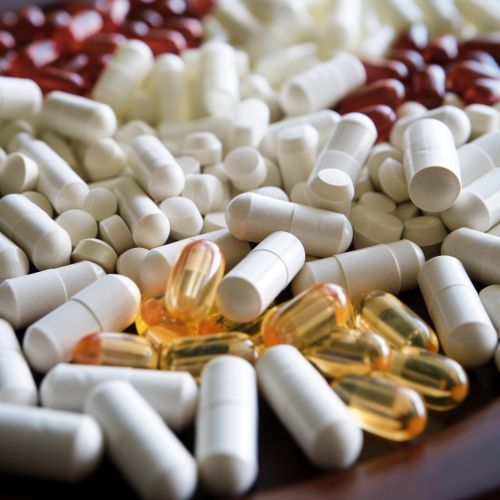Probiotics
Introduction
Probiotics are live microorganisms that are intended to have health benefits when consumed or applied to the body. They can be found in yogurt and other fermented foods, dietary supplements, and beauty products. Although people often think of bacteria and other microorganisms as harmful “germs,” many are actually helpful. Some bacteria help digest food, destroy disease-causing cells, or produce vitamins. Many of the microorganisms in probiotic products are the same as or similar to microorganisms that naturally live in our bodies.
History
The idea that the gut's flora can have a positive impact on health has a long history. The concept of probiotics is believed to have been suggested as early as the start of the 20th century by the Nobel laureate Elie Metchnikoff, who suggested that "the dependence of the intestinal microbes on the food makes it possible to adopt measures to modify the flora in our bodies and to replace the harmful microbes by useful microbes".
Types of Probiotics
There are many different types of probiotics, and their health benefits are determined by the job that they do in the gut. They must be identified by their genus, species, and strain level. Here is a list of probiotics and their possible health benefits:
1. Lactobacillus: This may be the most common probiotic. It’s the one you’ll find in yogurt and other fermented foods. Different strains can help with diarrhea and may help with people who can’t digest lactose, the sugar in milk. 2. Bifidobacterium: You can also find it in some dairy products. It may help ease the symptoms of irritable bowel syndrome (IBS) and some other conditions. 3. Saccharomyces boulardii is a yeast found in probiotics. It appears to help fight diarrhea and other digestive problems.


Health Benefits
While research is ongoing, there's good evidence that some probiotics may help with:
1. Digestive disorders: Probiotics can help with the inflammatory bowel diseases Crohn's disease and ulcerative colitis. They can also help with conditions such as IBS. 2. Allergies and colds: There's some evidence that probiotics may boost the immune system and promote a healthy immune response. 3. Oral health: Taking probiotics could help to prevent cavities. There's also evidence that probiotics can fight periodontal disease, halitosis, and prevent the overgrowth of the yeast Candida albicans, and speed up the healing of oral ulcers.
Safety and Side Effects
Probiotics are generally considered safe for most people, but may cause gas and bloating in some cases. If you have a weakened immune system, be it from a disease or its treatment, avoid probiotics unless your doctor has okayed their use. Probiotics should be used cautiously by pregnant women, infants, and young children and never given to critically ill patients.
Conclusion
Probiotics offer a way to restore the natural balance of your gut bacteria and improve health. They're not a cure-all, but they can provide numerous benefits when used properly. More research is needed to determine the best strains and dosage for specific health conditions.
